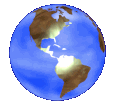 ONE BIOSPHERE
ONE BIOSPHERE 
| |
|
|||


ENTER OUR ENVIRONMENTAL FORUM READ NEWS ABOUT THE ENVIRONMENT
OUR STORY
One Biosphere is an alliance of people and organizations who are united to preserve the quality of our global environment through our forum and publications, education, advocacy, research and communications among our members and partners.
One Biosphere makes laws work for humans, habitats and the globe. With our non-partisan, independent approach, One Biosphere promotes sustainable solutions to difficult environmental problems. One Biosphere encourages and sponsors innovative research, sensible analysis and original publications to inspire, inform and empower citizens, policy-makers, business leaders, and environmental advocates globally. One Biosphere is committed to its role of environmental leadership in all facets of environmental protection.
Biodiversity and Human Health
Although there is limited understanding of the impact of specific changes in biodiversity on health and human and animal disease, the basic linkage between environmental change and human health is recognized. New diseases resulting from the destruction and fragmentation of tropical forests and other ecosystems, wildlife-human disease linkages such as Lyme disease, West Nile virus and avian flu, the known and unknown natural drug products and the impact of ecosystem services on human health confirm the linkage between biodiversity and human health.
The World Commission on Environment and Development reported 20 years ago about the importance of biodiversity. We need to recognize that humans are part of our ecosystems and that we are intimately affected by changes in ecosystems, health of species and genetic changes. Human wealth, security and culture are impacted by changes in biodiversity and related impacts on ecosystem services.
As the foundation for sustainable development, biodiversity plays a key role in maintaining and enhancing the well being of the globe's 6.7 billion people. Biodiversity comprises the source of the renewable capital upon which productive human activity is based. The accelerating loss in biodiversity over the past 2 decades has lowered the capacity of ecosystems to provide services and has profoundly impacted opportunities for sustainable development around the globe. The impacts are manifested in developing countries due to non sustainable consumption patterns and trade in the industrial world.
Roughly 1 billion people survive in a subsistence lifestyle and loss of ecosystem productivity through reduced soil fertility, drought or over-fishing may quickly cause malnutrition, damaged childhood growth and development and higher susceptibility to disease. Globally, there is a nutritional imbalance with a billion over-nourished rich people and a similar number of malnourished, poor people.
Biodiversity and Infectious Diseases
There are various other factors that increase the exposure to and risk of disease. Increasing human population provides more disease hosts. Rising global temperatures alter the distribution of disease transmitting organisms such as mosquitoes. Drug resistance to conventional treatments is increasing and increasing poverty and malnutrition make populations more susceptible to disease. Experiences with West Nile virus, hantavirus, avian influenza and tuberculosis reveal that disease causing organisms are adapting to changing environments and rates of infectious diseases have been increasing.
Human generated environmental changes have altered growth of human disease and increased stress on human welfare. Reduction of genetic diversity, overcrowding and habitat destruction increase vulnerability to diseases. Some ecosystem changes create new habitat for malaria. For example, the government policy of encouraging human settlement in the Amazon basin increases the risk of malaria. Deforestation in Africa has increased the risk of malaria.
Changing ecosystem services in freshwater systems, food-producing systems and climatic stability have caused significant adverse impacts on human health in the past 20 years, mainly in poor countries. Rich communities avoid the impact of local ecosystem degradation through migration, substitution or by appropriation of resources from less-affected regions.
Reduced biodiversity may have significant impacts on human health. Environment changes alter disease patterns and human exposure to disease. Due to high resource inputs from farming, including water and fertilizers and agricultural spread, ecosystems are under pressure which in turn contributes to nutritional imbalances and reduced access to foods from natural habitats.
Traditional Medicines
Biodiversity is the source of many cures. In recent years, the majority of new chemicals globally have been biotech drugs which are traced to or inspired by natural products. Profits from these developments may be enormous. For example, estimates of the value of anti-cancer agents from marine organisms exceed US$1 billion annually.
Traditional medicines derived from plants are a mainstay of primary health care for a significant proportion of the population in developing countries. It is deduced that 80 per cent of people living in developing countries rely on traditional medicines derived from plants and more than 1/2 of the most common drugs in developed countries derive from natural sources.
Reduced biodiversity may decrease our options for new treatments. WHO has identified 20,000 species of medicinal plants for screening and there are a multitude of species whose medicinal values are being discovered or may offer future value. The value of the global herbal medicine market was estimated at U.S.$40 billion in 2007.
Managing Biodiversity Change and Human Health
The capacity of ecosystems to remove wastes from the environment is degraded due to increased waste load and degradation of ecosystems which leads to local and global waste accumulation. Examples include the retention of particles and gases in the air and of microorganism contaminants, inorganic chemicals, heavy metals, radioisotopes and organic pollutants in water, soil and food. These wastes have a broad range of negative health impacts.
Ecosystem services are not equitably distributed and are problematical from a human health perspective. Essential resources such as shelter, nourishing food, clean water and energy supplies are top priorities of sound health policies. Where poor health is caused by excessive consumption of ecosystem services, substantial utilization reduction would have major health benefits and concurrently reduce pressure on ecosystems. For example, in rich countries, where excessive consumption is causing deleterious health impacts, the reduced consumption of animal products and refined carbohydrates will have significant benefits for both human health and for ecosystems globally. Integration of countrywide agricultural and food security policies with the economic, social and environmental goals of sustainable development could be facilitated by ensuring that the environmental and social costs of production and consumption are included in the price of food and water.
Responses that mitigate the impacts of ecosystem changes on human health often involve policies and actions outside the health sector. Actions mitigating the impacts of climate change require cooperation across multiple sectors. However, the health sector is responsible for communicating the health impacts of ecosystem changes and making effective, innovative interventions. There may be tradeoffs between mitigation of negative health impacts and economic growth so that it is important that the health consequences are considered and included in establishing priorities and resolving trade-offs.


![]() Our Email: one@onebiosphere.com
Our Email: one@onebiosphere.com
| HOME | About Us | Membership | Online Store | Terms & Conditions | Privacy Policy | Links | Contact Us |
© Copyright One Biosphere. All rights reserved